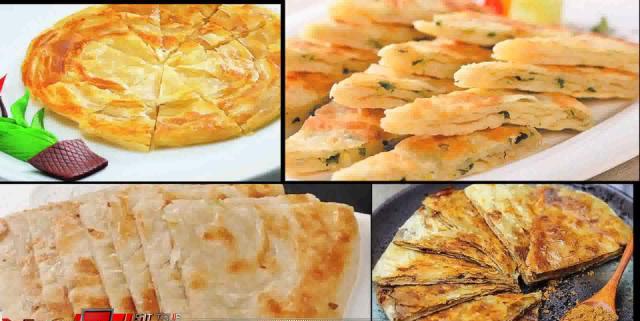(CCTV Finance "Is It True") Flapjack is one of the most popular noodles, it is generally made of metal pots and pans, but there are rumors on the Internet that with stone slabs can also be baked, in Yunnan Province, Gongshan Dulong Nu Autonomous County there is a kind of pasta, is made of slate. But can you really bake a cake with a slate? With curiosity CCTV financial channel "Is it true" reporter embarked on a journey of verification.

Gongshan Dulong Nu Autonomous County is located in the northern section of the Grand Canyon of the Nu River in northwest yunnan, bordering the Republic of the Union of Myanmar to the west. When you come to the local area, it is noon, so will this supposedly more common food appear on people's tables?
After some searching, the reporter met a enthusiastic villager in the village. Brother Li told reporters categorically that there was indeed such a pancake, which was one of the staple foods of the locals, and that their family would eat it at noon. The reporter followed Brother Li to his home, only to see that Brother Li's mother was busy by the fire, and after careful observation, the reporter did not find the shadow of the stone.
Brother Li pointed to a black round board in front of him and told reporters that this was the stone slab. Brother Li moved the slate outside the well-lit house. The reporter wanted to pick it up and weigh it, but this board is very heavy, and the feel is smooth and delicate, but it is like an iron plate, and when the reporter is wondering, Brother Li took out a knife and scraped it on the stone slab. Unexpectedly, as the knife surface moved, a white scratch appeared on the surface of the blackboard, and the powder splashed around. Then the reporter decided to flip the still steaming stone slab over, and the reporter found that the other side of the board was different, and the middle showed a pattern of suspected stones.
Brother Li told reporters that this stone slab was mined from a local stone mountain. Locals select high-quality stones and strip them from the mountain, cutting, polishing and polishing them to form stones.
So how exactly do you make flapjacks with this slate? With curiosity, the reporter continued to observe.
After Adjusting the Batter, Aunt Zhang placed the stone slab on the iron frame of the fire pit and heated it. Subsequently, in the absence of oil, Aunt Zhang directly poured the batter evenly on the surface of the stone slab. Bake slightly and turn the pancakes over. After a while, a buckwheat pancake is complete. As one of the daily staple foods of the local area, a few small dishes are fried, people take a bite of chili pepper and flapjack, accompanied by fragrant butter tea, and the tiredness of the day is quietly washed away in the delicious taste of the tip of the tongue.
But we can't help but wonder why there is such a food culture as the use of stone slabs to make flapjacks.
Li Jinming, deputy director of the Institute of Ethnic Literature of the Yunnan Academy of Social Sciences, said: "First, the main reason is that the local resources of this stone are relatively rich; the second is because the shape of this stone can be split into very thin and thin, it will not crack; the third is that this stone will not crack and explode after it is heated on the fire pond, and the people find that this stone can be used in long-term life, so they use this stone to bake cakes." ”
So must the stone used in the slate flap must be the locally produced stone? Can it be replaced with other stones?
Li Jinming, deputy director of the Institute of Ethnic Literature of the Yunnan Academy of Social Sciences, said: "Other stone slabs cannot be replaced, because other stones cannot be split into thin shapes, and ordinary stones will explode in case of fire. ”
The locals also call it slate slate slab, and its production process is not complicated, but because of its unique production tools, the slate is deeply marked by the local brand. This can't help but make us lament the wisdom of human diet, but also deeply grateful for nature's selfless gifts to us.
(Editor of this article: Wei Yuanyuan)